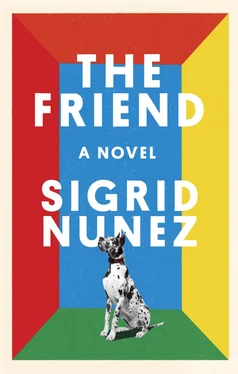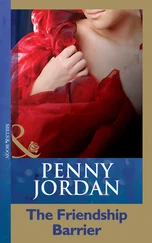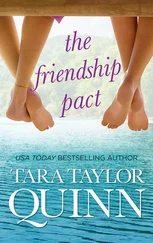—
“I hope this place is all right. It was so nice of you to come all this way.”
The trip, as she knows, took less than thirty minutes, but she is a gracious woman, Wife Three. And “this place” is a charming European-style café, just around the corner from your brownstone. (It is still your brownstone .) A perfect setting, I thought when I entered and saw her at a table by the window—not using an electronic device like everyone else who was there alone (and even some who weren’t), but instead contemplating the street—for such an elegant, pretty woman.
She’s the kind of woman who knows fifty ways to tie a scarf was one of the first things you ever told us about her.
It’s not so much that she doesn’t look sixty as that she makes being attractive at sixty look easy. I remember how surprised we all were when you first started seeing her, a widow nearly your own age. We were thinking, of course, of Wife Two, and of others who were even younger, and how, given your proclivities, it was only a matter of time before there’d be someone younger than your daughter. We agreed that it must have been the battles of your second marriage, which you used to say had aged you ten years, that drove you into the arms of a middle-aged woman.
But even as I admire her—the freshly cut and colored hair, the makeup, the hands beautifully manicured as I know the hidden feet are beautifully pedicured—I am unable to suppress a certain thought, the very same thought I had when I saw her at the memorial event and found myself remembering a news story about a couple whose child had vanished while the family was on vacation. Days had passed, the child was still missing, there were no leads, and the shadow of a doubt had fallen on the parents themselves. They were photographed coming out of a police station, an ordinary-looking couple whose faces left no impression. What stayed with me was the fact that the woman was wearing lipstick and jewelry: a necklace—a locket, I think—and a pair of large hoop earrings. That, at such a moment, a person would trouble to put on makeup and jewelry astonished me. I would have expected her to look like a homeless person.
And now again, in the café, I think: She is the wife, she found the body. But here, as at the memorial, she has made every effort to look not just presentable, not just pulled together, but her best: face, dress, fingertips, roots—all meticulously attended to.
It’s not criticism I feel, only awe.
She was different: one of the few people in your life who wasn’t in one way or another connected to the literary or academic worlds. She had worked as a management consultant at the same Manhattan firm since graduating from business school. But hey, she reads more than I do, you used to tell people, in a way that made us cringe. From the beginning, polite but distant toward me, content to accept me as one of your oldest friends while herself remaining only my acquaintance. Better this by far than the mad jealousy of Wife Two, who demanded that you stop having anything to do with me or any other woman from your past. Our friendship in particular irked her; she called it an incestuous relationship.
Why “incestuous”? I asked.
You shrugged and said she meant that we were too close.
She never would believe we weren’t fucking.
Once, when we were on the phone, I said something that made you laugh. In the background I heard her complain that she was trying to read. When you ignored her and kept laughing, she became incensed. She chucked the book at your head.
You said no. You would agree to see me less often, but refused to drop me completely.
For a while you put up with the rages, the flying objects, the screaming and weeping, the neighbors’ complaints. And then you lied. For years we met on the sly, as if we really were secret lovers. Crazy making. Her hostility never waned. If our paths crossed in public, she would look daggers at me. Even at the memorial, she looked daggers at me. Her daughter—your daughter—wasn’t there. I heard someone say she was in Brazil, on a research project, something to do with some endangered—bird, I think it was.
Much unhappiness between you and your estranged only child, even less forgiving of adultery than her mom was.
She doesn’t understand, you said. She’s ashamed of me.
(What made you think she didn’t understand?)
But not a drop of resentment in Wife Two’s in memoriam piece. You were the light and love of her life, she’d said, the best thing that ever happened to her. And now, they say, she’s writing a book about her marriage to you. A novelization . Wherein perhaps I’ll learn whether you ever told her that, in fact, we did fuck. Once. Years ago. Long before she met you.
Barely out of school yourself, you had just started teaching. I was not the only one of your students to become your friend, and it was in that same class that we both met Wife One. You were the department’s youngest instructor, its wunderkind, and its Romeo. You thought any attempt to banish love from the classroom was futile. A great teacher was a seducer, you said, and there were times when he must also be a heartbreaker. That I did not really understand what you were talking about did not make it less exciting. What I did understand was that I craved knowledge, and that you had the power to transmit it to me.
Our friendship went on beyond the school year, and that summer—the same period when you began courting Wife One—we became inseparable. One day you startled me by saying we should fuck. Given your reputation, this should not have been a surprise. But enough time had passed that I was no longer anxiously waiting for you to pounce. Now came this blunt proposal, and I didn’t know what to think. I asked, stupidly, why. Which gave you a good laugh. Because, you said, touching my hair, we should find that out about each other . I don’t think it ever occurred to either of us that I might refuse. Among all my desires at the time—and you could call it the most ardent time of my life—one of the strongest was to put my full trust in someone; in some man.
Later, I was mortified when you pronounced it a mistake for us to try to be more than friends.
For a while, I faked illness. For a while longer, I pretended to be out of town. And then I really did become ill, and I blamed you, and I cursed you, and I did not believe you could be my friend.
But when finally we saw each other again, instead of the painful awkwardness I’d feared, something—a certain tension, a distraction I hadn’t even been wholly aware of before—was gone.
This was, of course, precisely what you’d been hoping for. Now, even as you completed your conquest of Wife One, our friendship grew. It would outlast all my other friendships. It would bring me intense happiness. And I felt lucky: I had suffered, but unlike others I never got my heart broken. ( Didn’t you? a therapist once goaded me. Wife Two was not the only one who found something unhealthy about our relationship, nor was the therapist the only one to wonder if it hadn’t been a factor in my remaining single all these years.)
• • •
Wife One. An undeniably true and passionate love. But not, on your side, a faithful one. Before it was over she had a breakdown. It is not an exaggeration to say she was never the same. But then neither were you. I remember how it tore you up when she came out of the hospital and immediately found someone else.
When she remarried you swore you never would. There followed a decade of affairs, most of them short-lived, but a few all but indistinguishable from marriage. Not one do I recall that did not end in betrayal.
I don’t like men who leave behind them a trail of weeping women, said W. H. Auden. Who would have hated you.
Читать дальше












